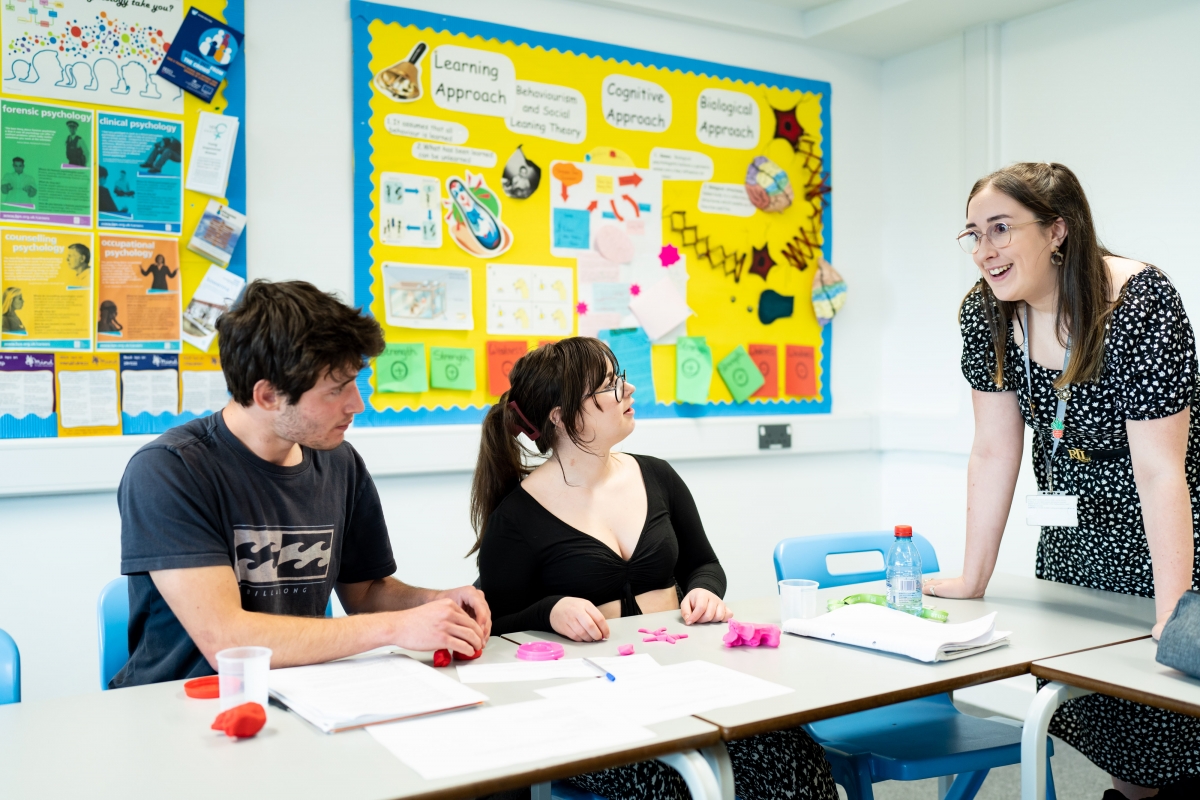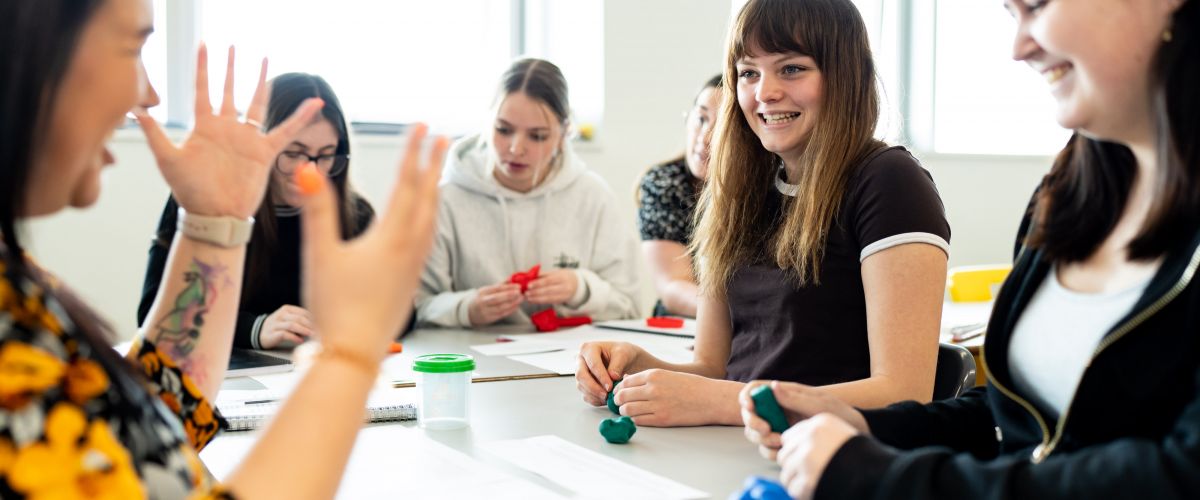A Level Sociology
Sociology is the study of society, explanations of social behaviour and an investigation into individuals’ relationship with society. It focuses on the social world and the influence of families, education, religion, the criminal justice system, social class, race and gender on our social experiences. Sociologists claim that society is the single most important influence in your life, and would argue that our behaviour can be largely explained by social circumstances and life experiences.
Key information
Social Sciences / Full Time / A Levels and Equivalent

Why choose this course?
A Level Sociology will introduce you to points of view on society, including those which largely approve of the way it works (Functionalism) to those which argue for change (Marxism and Feminism). In Sociology much of what we investigate is open to interpretation; it is therefore desirable if students enjoy discussions and debates. You must also like reading and writing as these are essential elements of the course. By studying Sociology you will learn to think critically and independently about society and your place in it, gain the tools to think for yourself, and develop a critical and informed understanding of the world around you. As such, it is essential that you are interested in current affairs and you will benefit from keeping up to date with the news.
What will I learn?
You will study a range of sociological theories, perspectives and methods in order to understand the nature of social life. You will answer questions, such as:
- Why do working-class students achieve lower GCSE grades than upper-class students?
- Why has the definition of childhood changed over time?
- Why are there many more men in prison than women?
- Why is religious practice declining?
You will study the following key subject areas: Families and Households, Education, Research Methods, Beliefs in Society, Crime and Deviance and the relationship between Theory and Methods. Sociology is 100% exam-based assessment; there is no coursework.
Families and Households: This unit examines the role of the family in contemporary society and how changes in the family have occurred over time. In this unit the nature and extent of changes within the family are studied, with reference to gender roles, domestic labour and power relationships. The changes in the nature of childhood is considered and how the status of the child has changed over time along with the change in demographic trends; such as how birth rate and death rate have affected the family.
Education with Research Methods: In a society dominated by debates around the effectiveness of education we develop an understanding of the factors influencing underachievement. Particular focus is on the difference in performance between male and female pupils and on the experiences and achievements of ethnic groups within the education system.
We also look at how sociologists research issues in society. This unit explores the methods that are used in research and examines previous sociological research. The problems associated with conducting research are examined. Students are also able to carry out their own research.
Beliefs in Society: Different theories of ideology, science and religion. We investigate the nature of religious organisations, including cults, sects, denominations, churches and New Age movements, studying how such groups come about. Examples of sects and cults, such as Jim Jones and The People's Temple, Scientology and Mormonism are also considered in our quest to understand the functions that different belief systems perform. We also discuss current debates such as whether religion is dying out and the rise of fundamentalism in the wake of 9/11.
Crime and Deviance with Theory and Methods: This unit focuses on explanations for patterns of behaviour and issues relating to social order and control. It provides an in-depth look at the main sociological theories and how they can be applied to the study of crime and deviance. We cover issues such as why certain groups in society appear to commit more crime than others, victims of crime and new developments such as global crime, people trafficking and cyber-crime. This unit continues the examination of research methods used by sociologists, with particular reference to researching crime and deviance.
Assessment Arrangements
You will be formally examined on each unit that you study. The examinations are traditional and essay-based, and are sat at the end of the second year. Your achievement in this subject is dependent upon excellent attendance, punctuality and effort. You will learn in a friendly atmosphere, using a variety of formative assessment methods.You will be assessed regularly on written essay work that is conducted either as homework or under timed conditions in class and given feedback on your progress. You also will be assessed regularly on sociological terminology and theory via tests.
Discussions and presentations are a vital part of our assessment process and you will be expected to contribute to those and reading exercises.
You will review your own performance in 1:1 sessions with your tutor.
You will undertake mock examinations on each unit in advance of your final exams.
Information & Support
We encourage all students to read widely and conduct their own research into society in particular in relation to the units you will study. Support is provided in class and on a one to one basis as required.
What will I need?
Five GCSEs at grade 4 or above, to include maths at grade 4 and English Language or Literature at grade 5 or above.
Additional Information
Awarding Body:
AQA
To obtain more information about this course, please call: 01208 224000 or email enquiry@callywith.ac.uk




